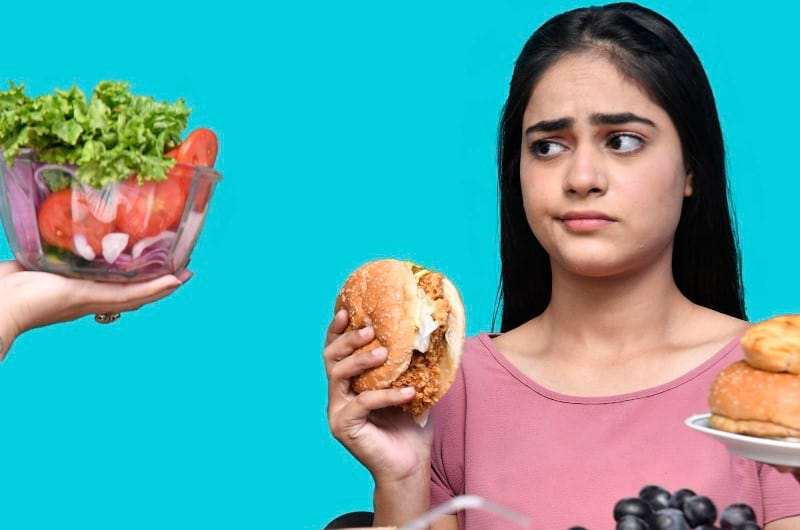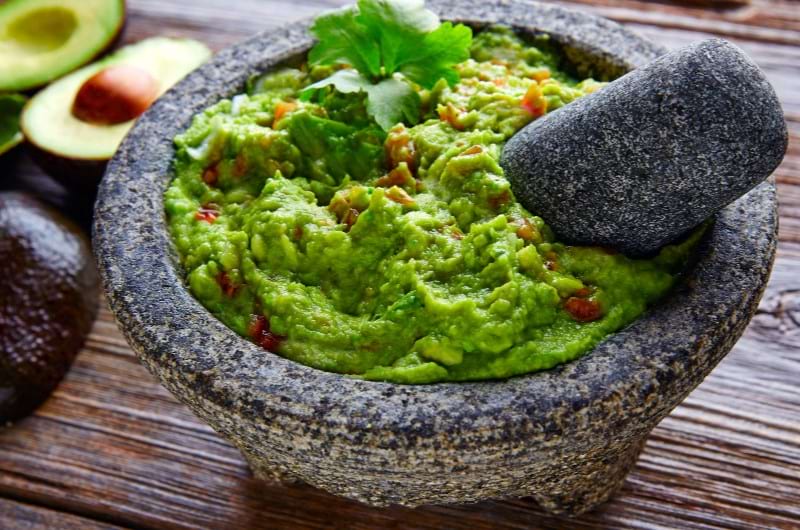There are natural ways to boost fertility for both men and women, and the best example is adding nutrient-dense food into your diet. Various essential nutrients for fertility include folate, iron, zinc, protein, fiber, antioxidants, B vitamins, vitamin D, and omega-3 fatty acids. These nutrients are essential for your overall health and increase your chances of having a healthy pregnancy.
You might be familiar with the term “fertility.” It’s all about the ability of males and females to produce healthy and quality sperm and egg cells.
When sperm successfully fertilizes an egg, it leads to pregnancy. In other words, fertility is the key to conceiving a baby.
Are you also one of those people wondering if some food may increase their odds of getting pregnant?
You’re in luck! There are some fertility-boosting foods that you may already have in your pantry. Just be sure to avoid those that may harm your chances of having a healthy pregnancy.
What factors affect my fertility?
1. Age
When a woman reaches her mid-30, she produces fewer and poorer quality eggs, which significantly declines as soon as she hits 40.
By then, it will be difficult for a woman to conceive and have a higher risk of a miscarriage.
Men also experience declining fertility but not as much as women. Their sperm quality and quantity also decline as they age.
2. Health conditions
Some health conditions can affect fertility in both men and women.
These include polycystic ovary syndrome (PCOS), endometriosis, thyroid problems, and diabetes.
These conditions can primarily cause menstrual and ovulation problems, hormonal imbalances, ovarian malfunctions, miscarriages, erectile dysfunction, and reduced sperm count and quality.
As a result, getting pregnant will be difficult.
3. Medications
Some medications used for various conditions, such as antidepressants, antipsychotics, and certain blood pressure medications, can have adverse side effects on fertility.
Immunosuppressive drugs can cause hormonal imbalance or affect sperm and egg production.
Non-steroidal anti-inflammatory drugs may cause menstrual irregularities and interrupt ovulation processes in women and may also cause hormonal imbalances and affect sperm quality in men.
Medical procedures such as chemotherapy and radiation therapy may harm reproductive organs and affect fertility.
4. Genetics
Genetics may be a contributing factor to problems in fertility. Genetically inherited disorders, like polycystic ovary syndrome (PCOS), endometriosis, and abnormal sperm production or function, can cause infertility.
Genetic factors like chromosomal abnormalities and gene mutation may affect the development and function of your reproductive organs, hormone production, and sperm and egg quality.
5. Weight
Being underweight or overweight may affect fertility in both men and women. These effects vary from person to person.
In women, being underweight or overweight leads to a hormonal imbalance resulting in irregular menstrual cycles. Being overweight or obese can affect ovulation, which increases your risk of developing polycystic ovary syndrome (PCOS) and difficulties getting pregnant even with fertility treatments.
In men, having excessive body weight can cause hormonal imbalances and affect sperm production, quality, motility, and shape.
6. Smoking

Women who smoke produce fewer eggs for fertilization.
It also causes hormonal imbalances, affecting regular menstrual cycles and healthy pregnancy. It increases the chances of a miscarriage.
Moreover, the chemicals from tobacco smoke can prevent the successful implantation of the fertilized egg, making pregnancy difficult or resulting in ectopic pregnancy.
Smoking can cause fewer sperm count in men, affect their sperm’s motility, and produce a quality sperm that cannot fertilize an egg or result in a healthy pregnancy.
7. Drinking alcohol
In women, alcohol can cause ovarian malfunction, irregular menstruation, damaged uterus lining, and increases the risk of infertility and miscarriage.
In men, alcohol can cause fewer and poorer quality sperm production.
8. Illicit drug use
Using illegal substances like marijuana, cocaine, opioid, methamphetamine, etc., can cause hormonal imbalance.
It also interrupts the normal ovulation process, increase the risk of infertility and ectopic pregnancy, and reduces the quantity and quality of sperm production.
9. Stress
When your body constantly releases stress hormones, it prevents the production of reproductive hormones, which impacts your fertility.

It can also lead to decreased libido and makes you prone to unhealthy lifestyle choices such as eating unhealthy, not exercising, abusing substances, etc., further impacting fertility.
10. Sexually transmitted diseases (STIs)
STIs like chlamydia or gonorrhea can cause reproductive organ complications, leading to fertility problems.
11. Environment
Exposure to chemicals, heavy metals, heat, radiation, pollution, and other hazards can negatively impact your reproductive hormones, affecting your fertility.
Is my diet affecting my fertility?
A healthy diet can promote fertility and support reproductive health in both men and women.
Eating a balanced, healthy diet can increase your chances of conceiving, while an unhealthy one can make it difficult for you to conceive.

Below are ways in which diet affects fertility:
1. Nutrient deficiencies
Some nutrients, such as folate, vitamin D, iron, zinc, omega-3 fatty acids, and antioxidants, improve fertility.
A diet low in these nutrients may increase your risk of infertility.
2. Carbohydrate and protein intake
A diet rich in refined carbohydrates, sugar, and saturated fats can mess up your insulin and hormonal levels, which may lead to ovulatory disorders.
So, choose wisely the kind of carbs you add to your diet.
Adding high-quality protein to your diet, like lean meats, poultry, fish, eggs, and plant-based protein, can improve reproductive health.
3. Unhealthy fats
A diet rich in unhealthy fats typically found in animal and dairy products, processed meats and other food items, fried foods, and margarine can promote inflammation and disrupt hormone production.
4. High caffeine intake
Some studies suggest that high caffeine consumption can increase your risk of a miscarriage, especially during early pregnancy.
It affects the normal ovulation process and reduces the success of fertility treatments.
Caffeine also affects the quantity and quality of sperm in men.
5. Hydration
Proper hydration is beneficial to overall health.
It promotes reproductive health optimizing sperm and egg production, and increases the chances of conceiving.
12 foods that boost your fertility
These vitamins and minerals can help enhance hormone production, promote healthy egg and sperm production, and creates an optimal environment for conceiving a baby.
1. Leafy green vegetables

Spinach, kale, Swiss chard, and broccoli are nutrient-dense vegetables rich in calcium, iron, antioxidants like vitamins E and C, and folate.
These essential prenatal nutrients promote:
- Reproductive health
- Improve sperm and egg quality
- Regulate hormones
- Reduce inflammation
- Control blood sugar
- Help you maintain a healthy weight
- Protect against possible congenital disabilities
Folate is one of the most essential nutrients for boosting fertility.
If you’re planning to get pregnant, your doctor may recommend taking a folic acid supplement of 400 mcg at least one month before trying to conceive.
2. Salmon
Wild salmon, mackerel, trout, and sardines are good sources of omega-3 fatty acids, particularly EPA and DHA.
These fatty acids are essential nutrients for fetal development, improve sperm health and quality, enhance hormone production, and promote fertility.
3. Whole grains
Adding whole grains like brown rice, quinoa, whole wheat bread, and oats to your daily grain intake benefits your blood sugar levels and hormones.
These are gluten-free carbohydrates and excellent fiber, protein, zinc, and folate sources, which can boost your fertility and increase your chances of conceiving.
4. Berries
Blueberries, raspberries, strawberries, and blackberries are rich in natural antioxidants, which keep sperm and eggs healthy and enhance fertility.
Berries are also excellent sources of vitamin C, zinc, and folate, which help promote reproductive health and support fetal development.
Women who want to lose weight must add at least one cup of berries daily to increase their odds of conceiving.
5. Citrus fruits
Oranges, grapefruits, lemons, and other citrus fruits are excellent sources of vitamin C which helps boost our immune system, improve hormonal levels, and increase fertility in both men and women.
These fruits are also packed with other nutrients that regulate ovulation and promote a healthy environment for eggs.
6. Nuts and seeds
Almonds, walnuts, chia seeds, flaxseeds, pumpkin seeds, and sunflower seeds are excellent sources of vitamins and minerals like zinc, magnesium, and selenium, as well as other essential nutrients like healthy fats, protein, and fiber.
These nutrients stimulate reproductive hormone production, improve fertility, and support a healthy pregnancy.
7. Eggs
Eggs, poultry, and tofu are examples of lean proteins.
These healthy sources of proteins, vitamins, minerals, and amino acids promote egg production, improve fertility, and aid in fetal development, preventing congenital disabilities.
8. Avocados
Avocados are everyone’s go-to food for healthy fats.
It’s packed with vitamin C, E, and K, which helps maintain hormonal balance, regulate blood pressure, and improve fertility.

Though avocados have high calories, they’re made up of healthy fats, which makes them nutritious, and having one a day wouldn’t harm your weight.
9. Greek yogurt
Greek yogurt offers more calcium than you can get from milk, and it’s rich in probiotics essential for gut health.
It also helps maintain a healthy immune system and promotes fertility.
10. Beans and lentils
You can find good plant-based protein, fiber, folate, zinc, and iron sources in legumes like beans, lentils, and chickpeas.
These nutrients can do magic in your fertility, particularly your reproductive hormones.
11. Dark chocolate
Dark chocolate is rich in antioxidants, preventing fertility problems and promoting sperm and egg health.
It’s also an excellent source of minerals that enhance hormone production, improve blood flow, and protect against cell damage which supports optimal functions of your reproductive organs.
Most importantly, it’s a mood enhancer, thus, helps in managing stress and anxiety.
Stress can negatively impact your fertility; thus, giving yourself a treat of dark chocolate can reduce stress and increase your odds of getting pregnant.
12. Watermelon
Watermelon must be everyone’s best friend during hot summer days because of its delicious and hydrating effects on the body.
It’s a known rich source of L-citrulline, an amino acid that promotes blood flow and enhances sperm health.
It’s also a great source of lycopene and vitamin C, which protects eggs from damage, regulates ovulation, and prevents fertility problems.
Because of its hydrating effects on the body, it allows optimal egg and sperm health, promoting fertility.
Foods to avoid to boost fertility

1. Processed foods
Trans fats that can harm fertility are primarily found in processed and fried foods, baked goods, and margarine.
These can increase bad cholesterol in your body which puts you at risk of obesity and developing heart disease and stroke.
If you’re also an avid fan of hot dogs, bacon, and sausage for breakfast, you need to cut these down, as processed meats have high amounts of unhealthy fats and sodium, which can reduce your fertility.
Limit eating processed foods and consume more fresh produce instead.
Preparing your breakfast the night before is a great idea, such as making overnight oats with various fruits and berries or avoiding adding processed products to your groceries.
2. Sugary foods
Sugary foods and beverages can mess up your blood sugar levels and result in insulin resistance, putting you at high risk of diabetes and ovulatory disorders.
3. Alcohol
Drinking alcohol negatively affects the body and may impact normal reproductive function, affecting fertility.
Avoid or limit your alcohol intake when trying to get pregnant.
4. Caffeine
Some studies suggest that overconsumption of caffeine can harm your overall health.
It’s also linked to fertility problems and may increase the risk of miscarriages as it prevents the body from absorbing folate, a nutrient essential for fertility.
Avoid caffeinated drinks such as coffee, tea, energy drinks, and sodas. Opt for a decaffeinated version of your favorite beverages.
5. High-mercury fishes
Now, be careful where to get your omega-3, as some fishes like sharks, swordfish, king mackerel, and tilefish have high mercury concentrations, which can cause fertility issues.
Consume other fatty fishes, like wild salmon, mackerel, trout, and sardines, or plant-based sources like beans, lentils, or other legumes.
6. Inorganic produce
Some products have been grown using synthetic fertilizers and pesticides, making them unhealthy.
Some studies suggest that synthetic fertilizers and pesticides may reduce fertility, increases your risk of a miscarriage, and hormonal imbalances.
Choose organic fruits and vegetables and wash or peel produce thoroughly to remove chemical residues.
You can also buy from local farmers as they follow a sustainable and organic way of growing their products.
7. Red meats
Red meat has high amounts of saturated fats, which may harm your reproductive health and cause fertility problems.
Opt for lean meats like eggs, poultry, fatty fish, and legumes, which provide higher amounts of vitamins and minerals.
References
- https://www.mayoclinic.org/diseases-conditions/infertility/symptoms-causes/syc-20354317
- https://www.healthline.com/health/infertility#female-causes
- https://www.webmd.com/infertility-and-reproduction/guide/at-risk-fertility-problems
- https://www.cdc.gov/tobacco/sgr/2010/highlight_sheets/pdfs/overview_reproductive.pdf
- https://www.health.harvard.edu/blog/fertility-and-diet-is-there-a-connection-2018053113949
- https://www.news-medical.net/news/20230404/How-does-nutrition-affect-female-fertility.aspx
- https://www.eatright.org/health/pregnancy/fertility-and-reproduction/fertility-foods
- https://www.ncbi.nlm.nih.gov/pmc/articles/PMC6079277/
- https://www.thebump.com/a/10-fertility-boosting-foods-to-help-you-get-pregnant
- https://www.healthline.com/nutrition/16-fertility-tips-to-get-pregnant#1.-Eat-foods-rich-in-antioxidants
- https://www.healthline.com/nutrition/foods-to-avoid-when-trying-to-get-pregnant#1.-Red-and-processed-meats
- https://www.ivf1.com/fertility-mercury/
- https://www.ncbi.nlm.nih.gov/pmc/articles/PMC7275874/


